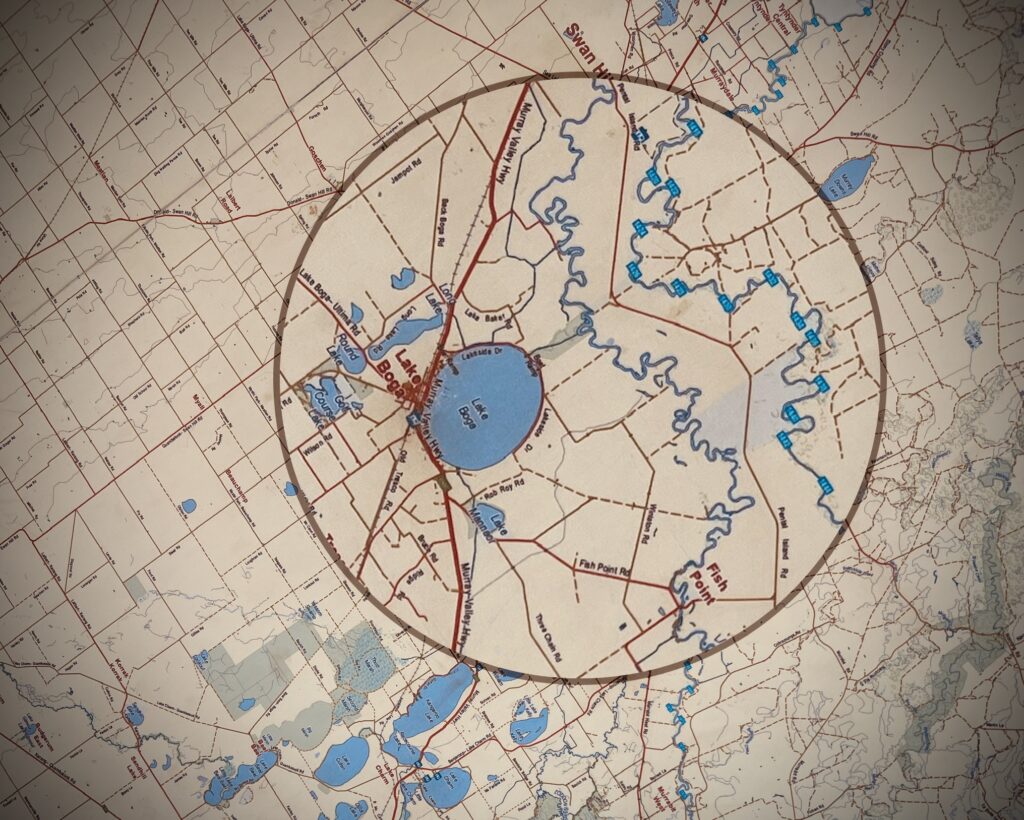For Murrindyarr-yaba events, please visit Events or scroll further down on this page.
MURRINDYARR-YABA
At the School of Culture, History & Language (CHL), it’s been an ongoing endeavour to champion initiatives from diverse walks of life and it is integral to CHL’s culture of inclusion and diversity. In line with this foundational value, CHL is a strong advocate of initiatives that encourage indigenising university spaces and supports collaborative projects with Indigenous communities across Oceania. This year marks the launch of a CHL Early Career Researchers’ (ECR) Collective—Murrindyarr-yaba, a culturally safe space for members to come together and interact. Here’s an introductory interview with the faces and personalities that constitute this Collective, its mission, objectives and spirit.
Can you tell us about the name of your Collective, ‘Murrindyarr-yaba’, and what it means?
Murrindyarr-yaba is a phrase used by the Traditional Custodians of the Ngunnawal Walgalu-Ngambri Country (Canberra and surrounds). Gifted to our Collective by Senior Elder Aunty Matilda House, ‘Murrindyarr’ translates to “people of present times” and ‘yaba’ means “talk”. While embodying the function and spirit of our Collective, the name acknowledges the Traditional Owners where we live and work.
The Ngunnawal and Walgalu-Ngambri are endangered languages, as a result of colonisation. Our Collective recognises that repetition and use of language are essential to the revival and preservation of at-risk languages and cultural reclamation. Language is the essence of First Nations peoples’ cultures; it transcends traditional practices and is at the core of Indigenous knowledge systems.
Can you tell us about the origins of the Collective and what it’s all about?
Murrindyarr-yaba was established this year to support Aboriginal, Torres Strait Islander and Pasifika early career researchers attached to CHL. The Collective aims to provide a welcoming and culturally safe space for members to come together to yarn/talanoa/toktok/mauswara, laugh, plan and share research/teaching ideas. A key focus this year will be a seminar series to promote the research being undertaken by the members. These events, which will be made available on the Decolonising the Academy: Trans-Indigenous Possibilities website, provide networking and interdisciplinary collaboration amongst First Nations and non-Indigenous scholars within CHL and beyond.
Our vision is to foster a productive and enriching academic experience for newly arriving First Nations Asia Pacific staff who are ECRs at CHL. A bigger dream is to expand the Collective to academics, indigenous to our respective nations Australia-wide and pan-Oceania, who are scholars of culture, history and language. The collegiality of this Collective aims to support the increasing number of First Nations early career researchers in Australia and wider Oceania. Members find strength in sharing experiences and approaches to assist the navigation of the sometimes turbulent and rigid scholarly pathways found in academia. Our respective First Nations ontologies collectively act as a consolidated voice in Murrindyarr-yaba, to contribute towards our peoples’ scholarly success and the decolonising of university spaces.
Who all are part of this Collective, and is it open to others who would like to join as the Collective evolves?
Murrindyarr-yaba is established for and by early career researchers, Indigenous to their respective countries, who are employed at the School of Culture, History & Language. Our Collective connects PhD Scholars as they transition to academic roles as early career researchers within the College of Asia Pacific and across ANU.
Historically, universities have functioned as imperial observatories to study and construct knowledge about Indigenous people, rather than producing work by, for and with Indigenous people. Culturally safe spaces such as Murrindyarr-yaba are vital to altering this perception and we encourage our non-Indigenous colleagues and mentors to engage with us in these challenging but necessary discussions. Also, keeping in tradition with the welcoming and humbling nature of First Nations peoples in Oceania, our hybrid seminar series will be open to all audiences.
COLLECTIVE MEMBERS
ROBERT WILLIAMS
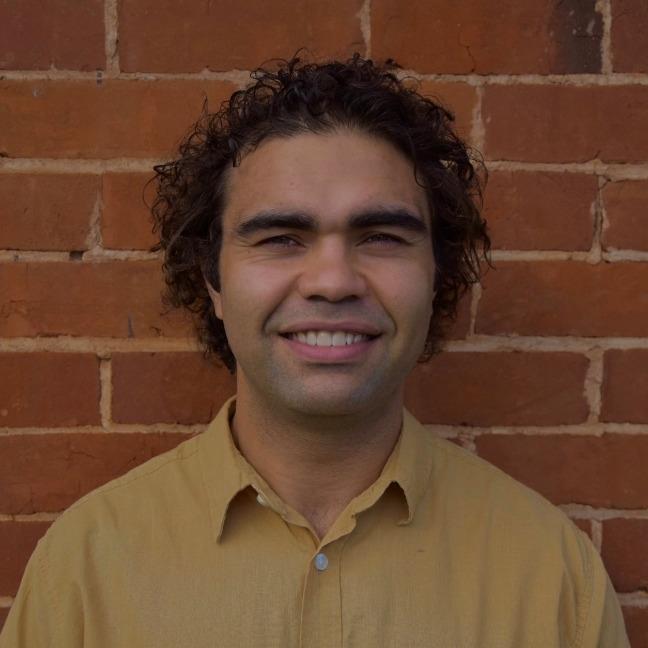
I am an archaeologist who belongs to the Walgalu (Ngambri), Ngunnawal and Wiradjuri language nations of NSW and the ACT. Firstly, I acknowledge Aboriginal and Torres Strait Islanders as the first peoples of this land. I also acknowledge the many Pasifika archaeologists and custodians, and academic mentors that I have had the pleasure of working with through my short journey in academia.
I was born and raised in my traditional country of Canberra and have undertaken my entire schooling on country. I completed a master’s at the ANU and then spent a short stint at the University of Sydney before returning last year to my alma mater, the ANU, as an Academic Associate. I have attempted to gain a diversity of experiences throughout my short research career in archaeology, working in the Torres Strait Islands but predominantly in Vanuatu. I am currently finishing my doctoral thesis which is based on the pre-European settlement history of West Futuna, in southern Vanuatu. I also work closely with many Aboriginal custodians of NSW in both contract and research archaeology. I have desire to use my education, for which I am very grateful, to pursue greater engagement and opportunities for Indigenous peoples of this region.
In my spare time I love growing veggies, mowing the lawn and did I mention I’m a Rabbitohs tragic – here’s to an improved and successful 2022 season!
JEN MASON
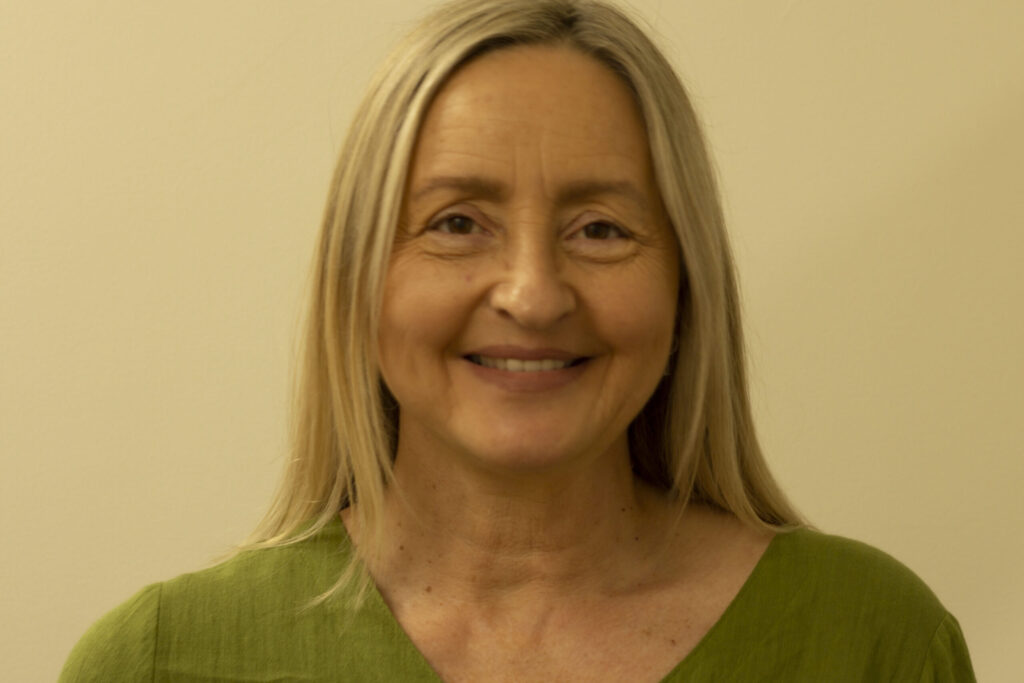
I am a descendant of the Gourmjanyuk clan of the Wemba Wamba nation, and the Theddora Mittung people of the Dhudhuroa nation through my great grandparents, who are apical ancestors of these two tribes. The historical decimation of my people and language means my traditional knowledge is fragmented and this is the motivation for my current work as a researcher. In our culture our individual history or yumerraki, (dreaming) would be recorded by identifying significant milestones on possum skins, forming a cloak to be worn through to adulthood. As directed by my Elders it is my cultural obligation to sieve through the available information to attain the necessary knowledge to pass on to our descendants.
I have chosen the digital media practice to present my research findings. In my doctoral research, I examined the cultural engagement between Indigenous and non-Indigenous people, producing a scripted documentary film as the major creative output. Focusing on creative practice framed through Yarning methodology, my current research builds on this decolonised approach, and includes content that connects my people to country, resulting in an immersive digital media output.
At the Queensland University of Technology I tutored in both the Communications and Digital Media disciplines. I have extensive professional experience in Event and Project Management, across a broad range of vocations within the communications sphere, both in Australia and overseas.
I enjoy many creative activities and streamline these to include content related to work and I also enjoy Karate to keep fit and cooking to relax.
RAYMOND (RAY) TOBLER
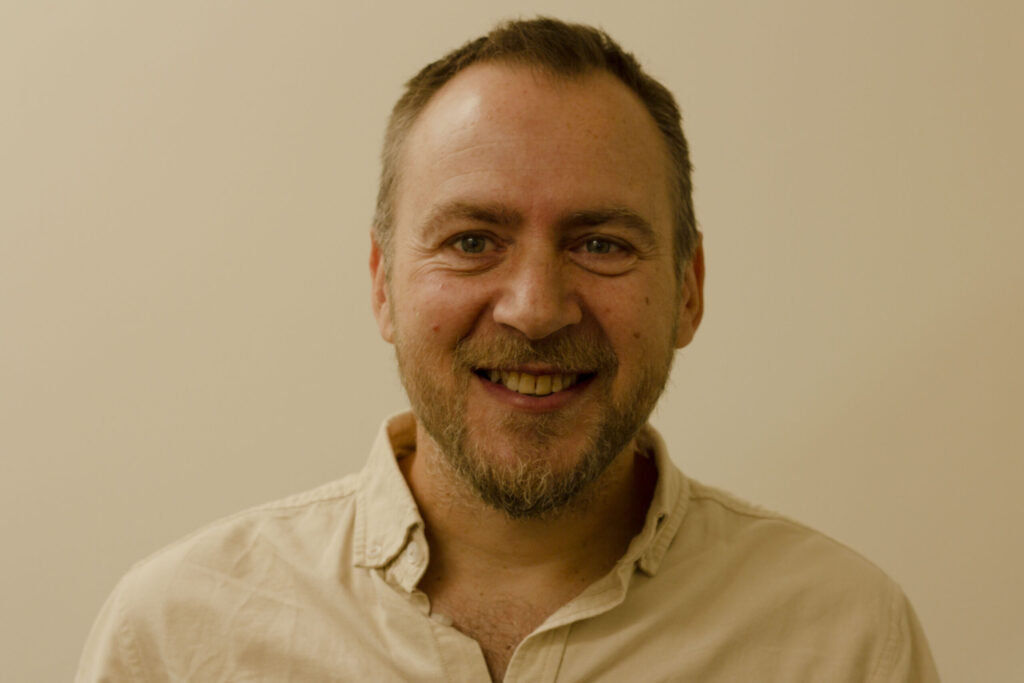
I am a population geneticist and evolutionary biologist, born and largely raised in NZ, of mixed Indigenous Australian and European heritage. I am now lucky to be collaborating with Indigenous groups from across Australia, New Guinea, and Indonesia to learn more about their deep history stretching back as far as genetics can peer (which is several 1,000s of generations, so quite a long way!).
A big part of my motivation to use remarkable power of modern genomics to unravel human history has been my own families’ ongoing search to learn about our Indigenous Australian heritage. Because every person’s genome is a record of their ancestry, it can be informative about heritage when other records are insufficient, which is sadly the case for many families adversely impacted by past Colonial Australian policies.
After completing my PhD (in fruit fly evolution) in 2016, I returned to Australia to be part of a unique study exploring the deep history of Indigenous Australia using DNA from historical hair samples, which were collected during anthropological expeditions starting nearly 100 years ago and reconsented by the original donors or their direct descendants. I am also involved in similar collaborative projects in New Guinea and Indonesia, with the view of gaining a deep understanding of the historical links within and between these regions.
When I’m not doing genetics, I enjoy a bit of woodworking and hiking and, as a recent arrival to ANU, am looking forward to exploring the natural beauty of Ngunnawal and Ngambri Country.
JENNY HOMERANG
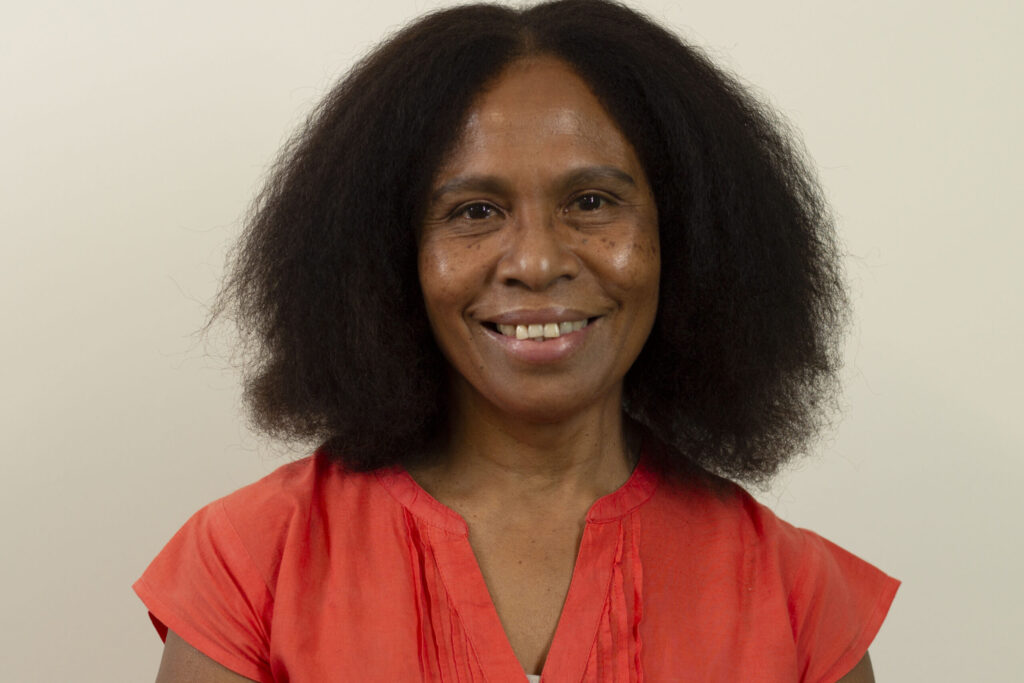
I am a Nalik-speaking woman from the Moxokamade babanga (hornbill) clan of Madina village, northern New Ireland, Papua New Guinea. My membership of the Moxokamade hornbill clan is through my mother’s line. Out of sub-clan and clan obligations and responsibilities and abina (place) care and well-being, my Moxokamade, babanga (hornbill) clan initiated me as a Wangpaang, (message-bearer) and go between Meimaai (Orator) and clan and sub-clan members. With this position, I was encouraged and given permission by a core group of decision-makers of seven clans in Madina to work with and alongside members of our community to research and articulate in writing the meanings we give to land in our three-phased mortuary ceremonies (a Punguva, a Nges Gom and Malagan) from a sek abina (people of the place) perspective. This PhD research is done through the Department of Asia and Pacific History and is a component of a bigger community project run by our Madina community-based NGO, Recreating the Village.
Some of the important work that has benefited our community from the current research has been the re-establishment of the Madina Aipopong Language and Culture School, recording of community clan-land genealogies and stories, a work-in-progress Nalik dictionary and teaching Nalik online to Madina children living in Australia, United Arab Emirates and the United States.
I joined the Department of Asian and Pacific Languages in 2018 as a Pacific Language Developer tasked to develop the online Tok Pisin language minor courses. In 2019 I took up the position of Lecturer and Convenor of the Tok Pisin Language program. In my spare time as an artist I enjoy creating 3-dimensional sand paintings. I absolutely love watching birds, listening to their unique sounds and connecting my hands back to the land in my backyard.
CHARLES JAMES TEKARAWA RADCLYFFE

I am a Solomon Islander of I-Kiribati and British descent and am delighted to have recently joined CHL as an Indigenous Postdoctoral Fellow. I specialise in archaeological and anthropological research in Oceania and consider myself truly blessed to live and work in such a culturally diverse and beautiful part of the world! Over the last decade, I have participated in and directed cultural research programs primarily in Solomon Islands as well as Papua New Guinea, New Zealand, Australia and the United Kingdom. Highlights from my fieldwork in my home country of Solomon Islands include surveying beautiful coastlines and pristine lagoons, eating delicious local fruits and traditional foods, and, most importantly, building relationships with local landowners and learning of their rich kastom (‘traditional’) knowledge and histories.
My current areas of research include the history of pottery-making in Solomon Islands, pre-European settlement and the development of exchange networks in the country, and navigating academic spaces as an early career Pasifika researcher. As one of Solomon Islands’ first archaeologists to hold a PhD, I recognise the privilege of my education as well as the duty and responsibility that comes with it to improve archaeological research and cultural heritage management practices in my home nation.
In my spare time, I love a game of basketball and volleyball, and rarely say no to some karaoke! Tagio tumas and ko rabwa! (“thank you very much!”).
What are some of the key issues you believe persist today for Indigenous communities in Australia and wider Oceania?
The vestiges of colonialism, that continue to negatively impact Trans-Oceania Indigenous communities are numerous. Based on common research interests of the members of Murrindyarr-yaba, we identify areas where our respective expertise and current projects, link to support communities’ empowerment and objectives of self-determination. Dispossession of cultural traditions, social inequities, prejudice and discrimination, population and connection to country, broadly encapsulate some of the important issues that persist today and often are the impetus for research.
The Murrindyarr-yaba seminar series will promote the research work of our members. The presentations aim to highlight how these important matters are being addressed by social scientists and humanities scholars who are Indigenous to trans-Oceanic countries supported at CHL.
What do you believe can be done to progress towards an improved state of being in this space?
Universities’ historical promotion of imperialist ideals have gained them a negative reputation amongst some Indigenous communities in Australia and wider Oceania. From our perspective as Murrindyarr-yaba Collective member researchers, spaces such as this Collective are vital to altering these negative perceptions. Importantly, the success of our work as early career researchers and our cultural footprint within academia presents relatable role models. This positionality contributes to encouraging First Nations peoples’ to participate in higher education. The inherent issues caused by colonisation are not only blackfulla or First Nations peoples’ issues.
**As part of the Murrindyarr-yaba collective mandate and pioneering efforts contributing to Indigenise universities, Murrindyarr-yaba invites you to become part of that effort through active engagement.
Reading our blogs, citing our publications, attending celebratory events or watching our seminar series, all constitute ways of becoming allies of inclusion.
We welcome you to join us in discussions that challenge traditional power structures in universities and that focus on engaging scholarship in ways that foster the decolonisation of university spaces.
UPCOMING COLLECTIVE INITIATIVES AND EVENTS
PREVIOUS SEMINARS IN THIS SERIES
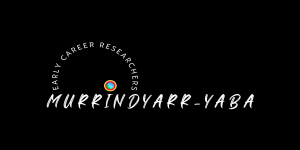
Murrindyarr-yaba Research Yarns: Concluding the 2022 Murrindyarr-yaba Seminar Series
Tuesday, 13 December 2022 | 10am-1pm | Australian Centre on China in the World Building 188, Fellows Lane Canberra
This catered event concludes our Murrindyarr-yaba Seminar Series for 2022, during which members of our collective presented their ongoing research projects and reflected on their journeying as Indigenous early career researchers.
The panellists will include speakers from the seminar series:
- Jen Mason (Wemba Wamba and Dhudhuroa Nations creative director and producer)
Ray Tobler (Aboriginal-European/Pakeha geneticist and evolutionary biologist)
Charles Radclyffe (Solomon Islands/I-Kiribati archaeologist)
They will reflect and yarn about their experiences and learnings while being a part of Murrindyarr-yaba.
We welcome yarning/open discussion from all attendees, however, on topics related to the theme of growing trans-Indigenous solidarity and decolonising university spaces.
Jen Mason, alongside invited Wemba Wamba Elders Gary Murray, Robert Nicholls, Cecily Atkinson and contributing collaborator Kooma man Brett Leavy, will also yarn about Wemba Wamba community and the collaborative research with ANU. This will include a preview of the ongoing creative project named Warreba NAIDOC VXR.
We would greatly appreciate your attendance to take part in our sharing of food, laughs, stories of challenges and victories and to continue to strengthen trans-Indigenous solidarity at ANU.
If you cannot attend the whole program, please pop by to meet our members and to share some food!
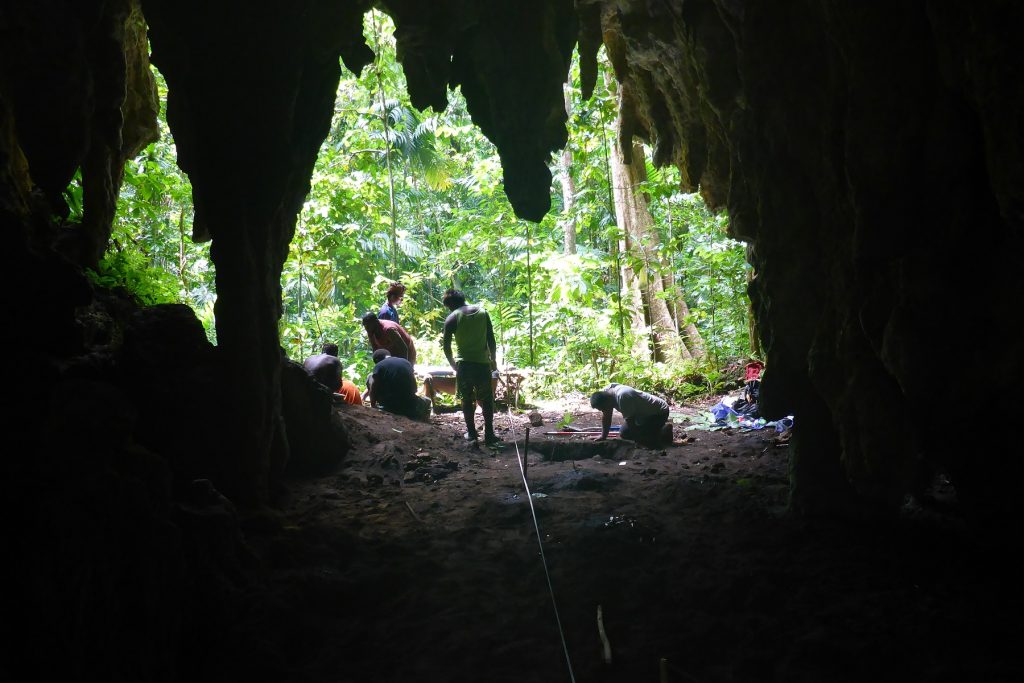 Iumi tok stori fastaem: findings from a recent survey of cave sites in western Solomon Islands and reflections about navigating between spaces of Indigeneity and archaeological research
Iumi tok stori fastaem: findings from a recent survey of cave sites in western Solomon Islands and reflections about navigating between spaces of Indigeneity and archaeological researchThe third presentation in the 2022 Murrindyarr-yaba Seminar Series
Date: 31 August 12:00pm
Venue: Seminar Room F, Level 3, HC Coombs Building and Online via Zoom
Speaker: Dr Charles J. T. Radclyffe
Indigenous (Pasifika) Postdoctoral Fellow, ANU School of Culture, History & Language
About the Event:
Navigating spaces of, and between, Indigeneity and university research is a contentious and often personally challenging task. As a university-trained and paid Solomon Islander archaeologist, it is plain for me to recognise my privileged social position and education. Knowing how to best utilise my privilege, however, to develop effective cultural heritage management practices, community engagement outcomes and capacity-building opportunities is easier said than done.
This two-fold presentation gives, firstly, a summary of findings from a recent three-week field survey of cave sites on Wagina, western Solomon Islands, which was aimed at identifying the earliest evidence of human settlement of the region. Secondly, it contextualises these findings and the presenter’s broader archaeological and anthropological research within theoretical and moral discussions about Indigeneity and the politics of knowledge production.
Drawing upon the growing body of Indigenous-authored and critical literature on these matters, in particular writings on Solomon Islands tok stori, personal reflections and aspirations are shared from the presenter’s perspective as a Solomon Islander of I-Kiribati and British descent.
This seminar will be in hybrid format, both in-person and online. Zoom details will be sent to individuals once they register via Eventbrite.

The second presentation in the 2022 Murrindyarr-yaba Seminar Series
Date: 29 June 12:00pm
Venue: Seminar Room F, Level 3, HC Coombs Building and Online via Zoom
Speaker: Dr Ray Tobler
About the Event:
The emergence of genomic research in the 21st century is rapidly transforming our understanding of human history, by providing a robust empirical basis to study the ancient migrations and interactions of our ancestors tracing back tens of thousands of years. In parallel, consumer ancestry testing has become increasingly popular in the past decade, providing private individuals with a geographical breakdown of their ancestral origins by comparing their personal genomes to growing genomic databases.
In this talk, Dr Ray Tobler will introduce the basic scientific principles used to reconstruct human history and ancestry from genetic data and discuss how his colleagues and he have applied these methods to investigate the deep history of Indigenous Australians stretching back ~50,000 years.
He will also outline some of the broader social implications of genomic technologies in human historical research, drawing upon his own professional and personal experiences that are motivated by his desire to learn more about his own Indigenous Australian heritage.
This seminar will be in hybrid format, both in-person and online. Zoom details will be sent to individuals once they register via Eventbrite.
See here for more information.
View the recording here.
Wemba Wamba Yumerraki: An immersive approach to research
The introductory seminar in the 2022 Murrindyarr-yaba Seminar Series
Date: 18 May 12:00pm
Venue: Room 3.369, Level 3, HC Coombs Building
Speaker: Jennifer Mason
About the Event:
Storytelling is at the heart of Indigenous knowledge systems and the visualization of the data analysis is posited through my perspective as a Gourrmjanyuk woman of the Wemba Wamba Nation. My research aims to take audiences on an immersive journey, gathering oral histories and experiencing culture, as I piece together Wemba Wamba songlines and yumerraki (dreaming stories). Digital assets created from the project data, collected utilising a decolonised methodological approach, will populate the reimagined pre-contact geography, of the immersive experience.
This research contributes to a larger collective of knowledge that ultimately may be utilised to inform capacity building of culture and people for Wemba Wamba Traditional Owners and other Indigenous Nations in Australia.
This seminar was held in hybrid format, both in-person and online.
See here for more information.
View the recording here.


